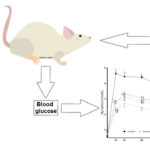Tag Archives:glucose
A mixture of plant extracts attenuates postprandial glycemia
Nutritional strategies in managing postmeal glucose for Type 2 Diabetes mellitus
Low-cost enrichment of datasets for genetic analysis: imputation and electronic health record linkage
Suvorexant, a dual orexin receptor antagonist, may work as a glucose regulatory switch
Glucose – a bitter sweet for the brain
Antipsychotic-induced severe hypoglycemia
The application of biosensors for meat quality analysis
To meet the demands of growing meat consumption in recent years, animal farming tended to increase meatiness. The rise of meatiness was not in concordance with the improvement of the meat quality. The quality of meat is






















